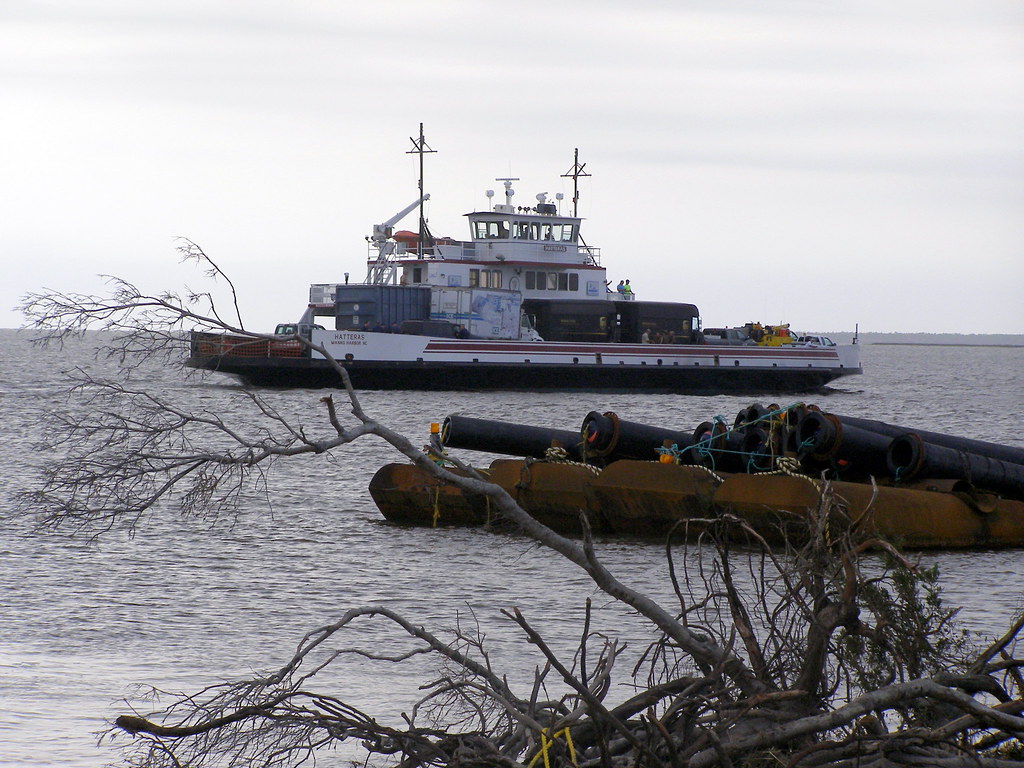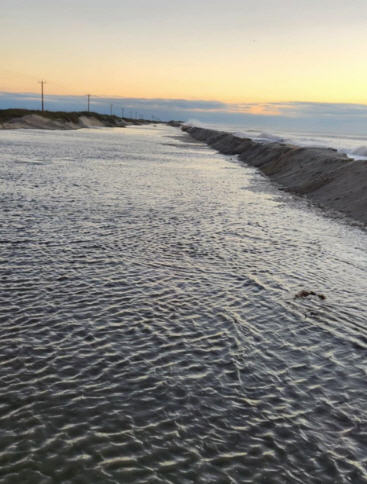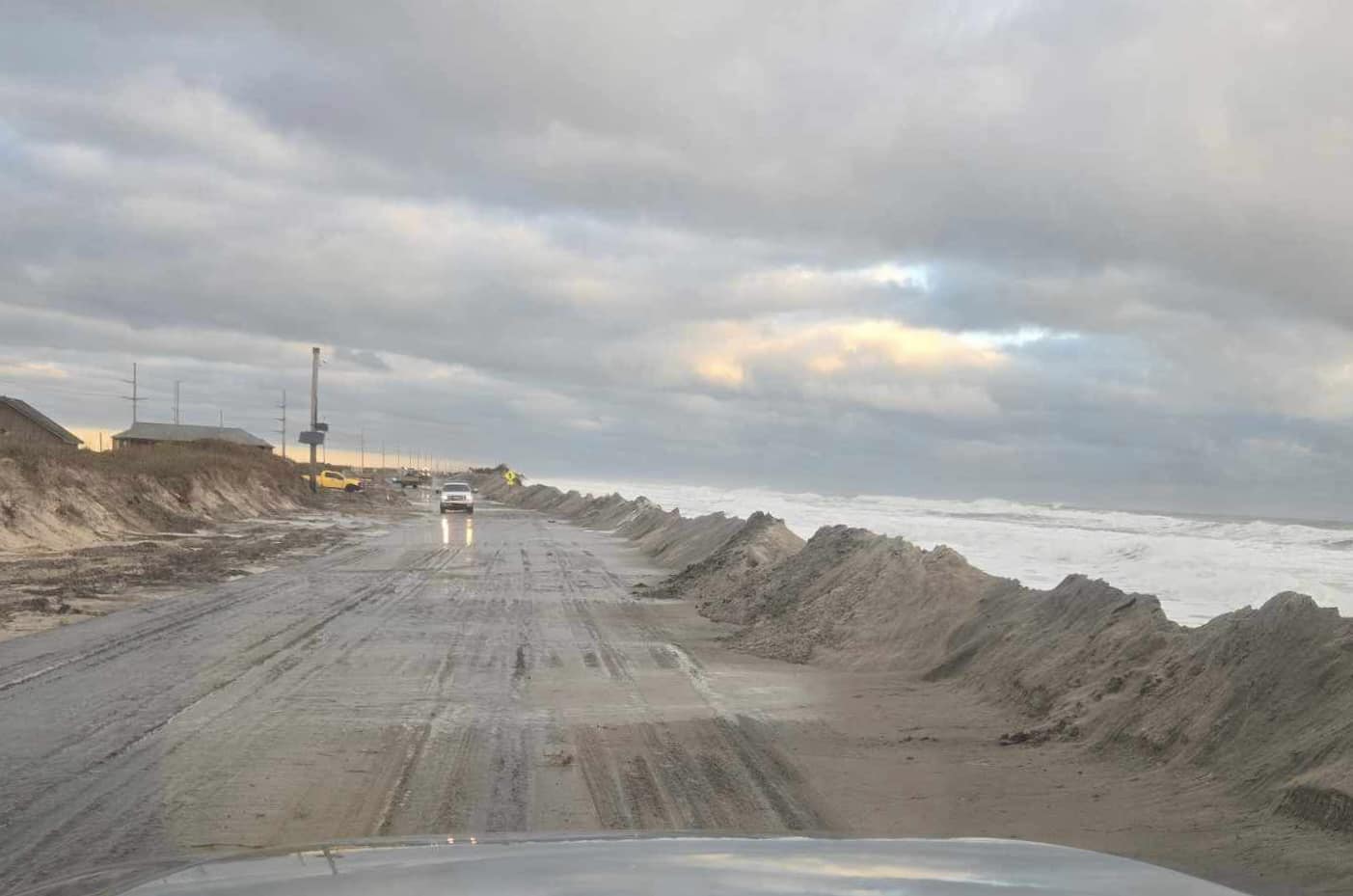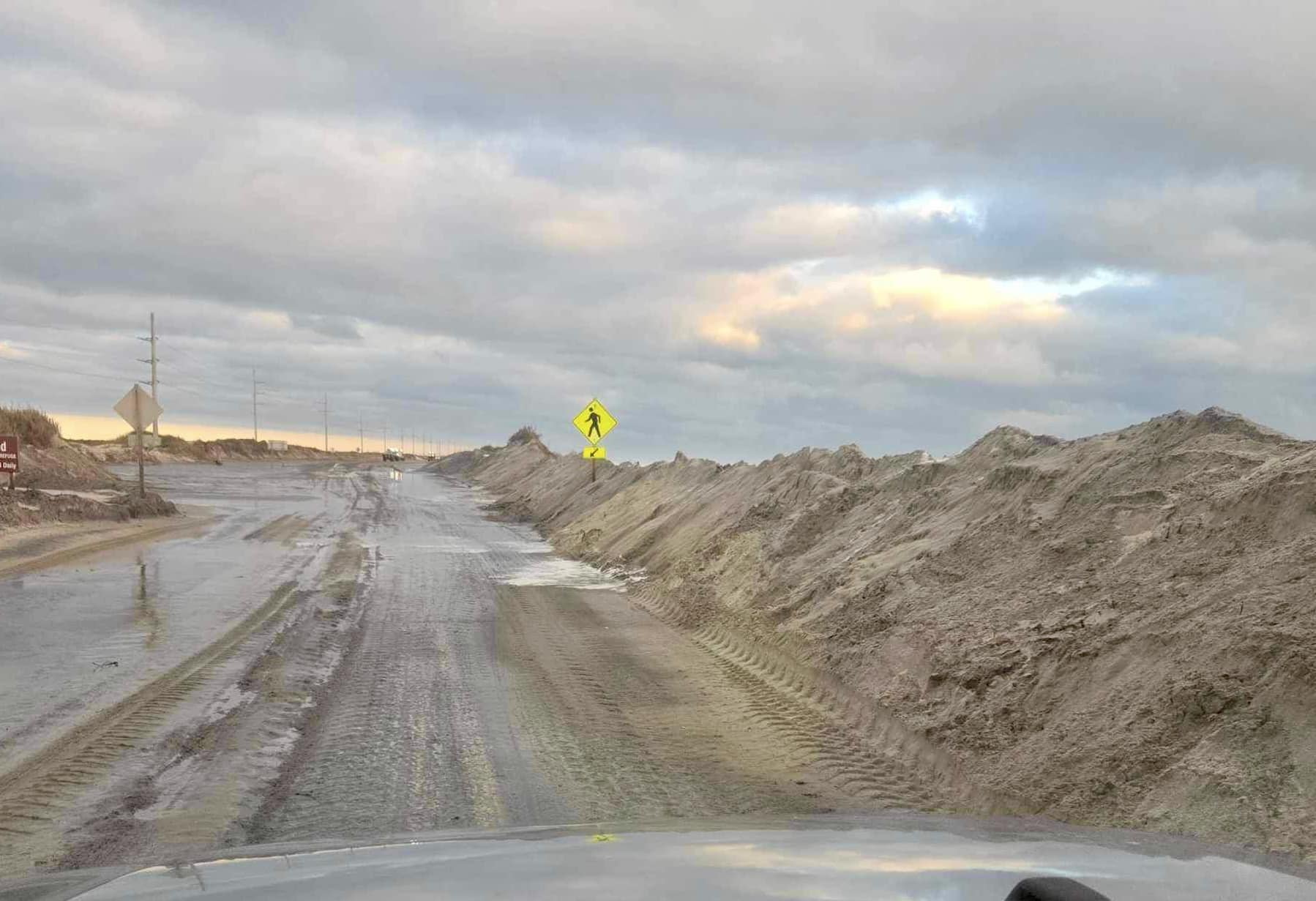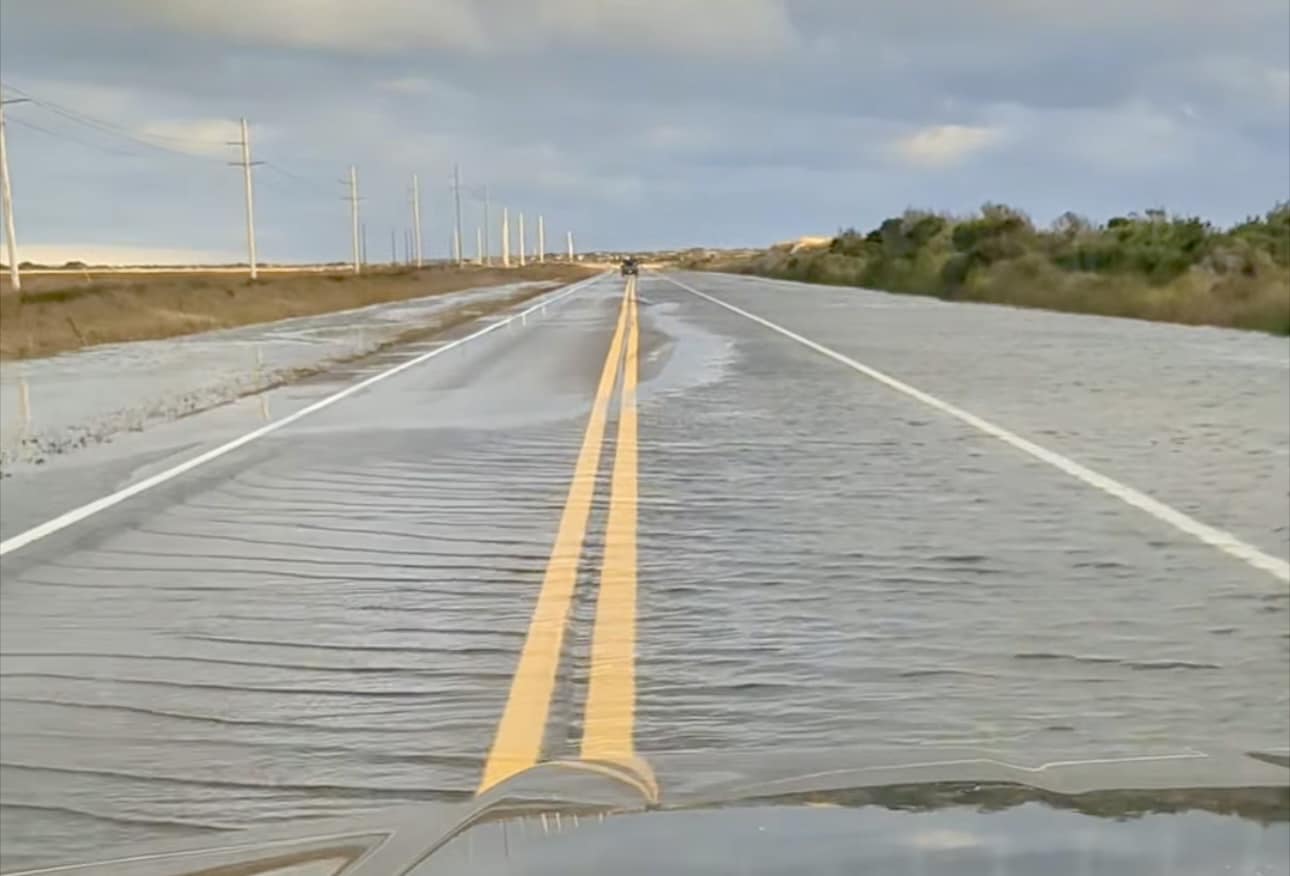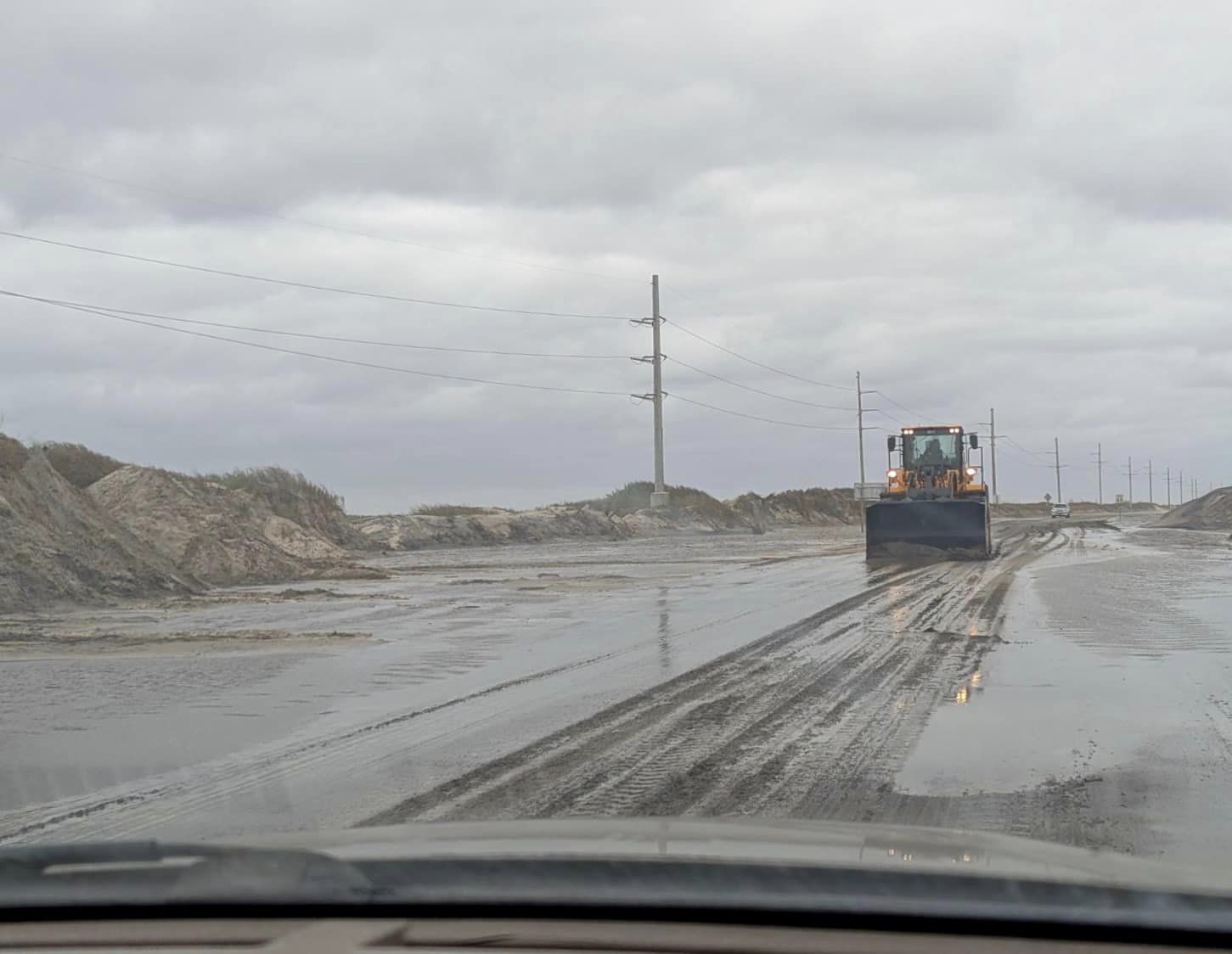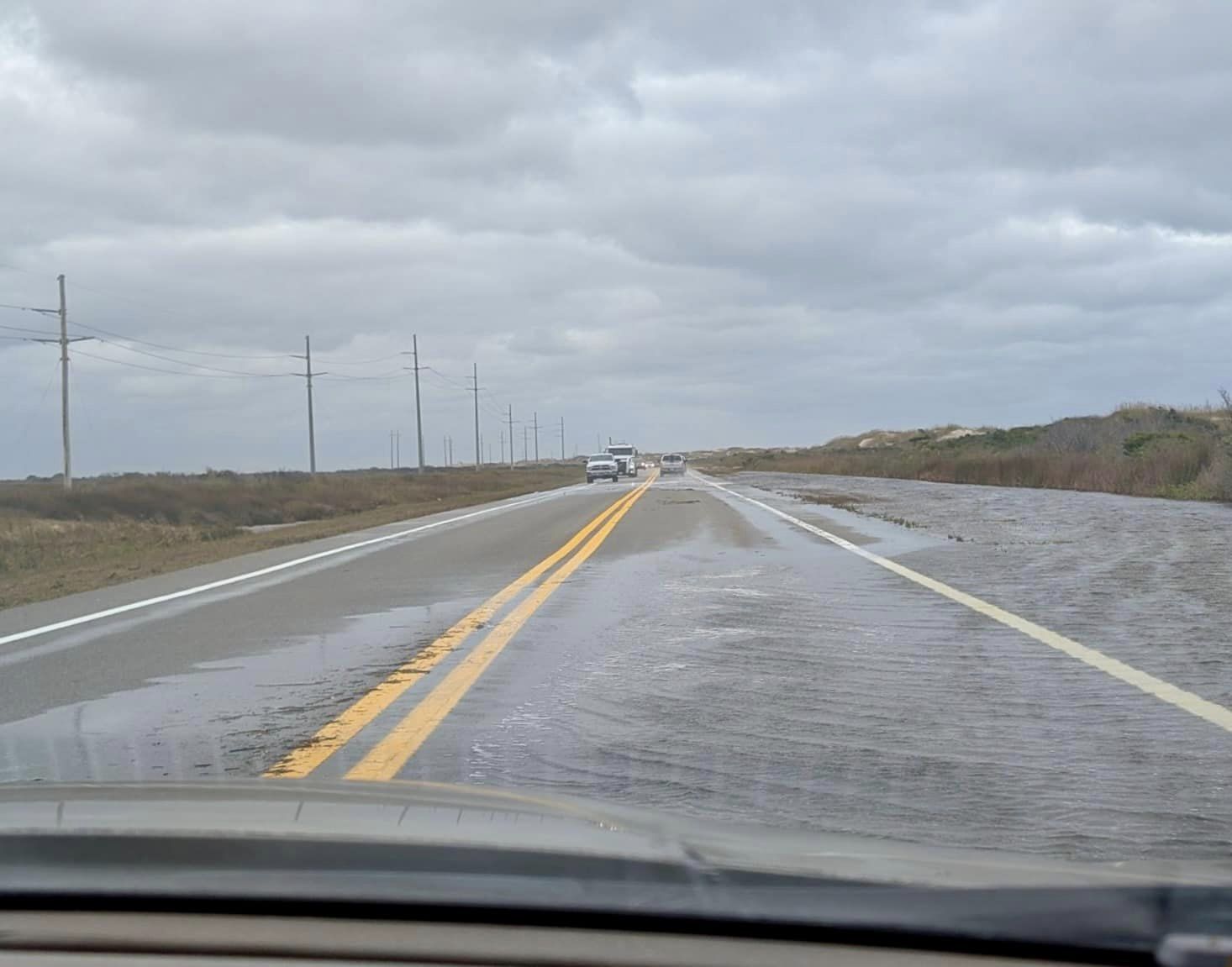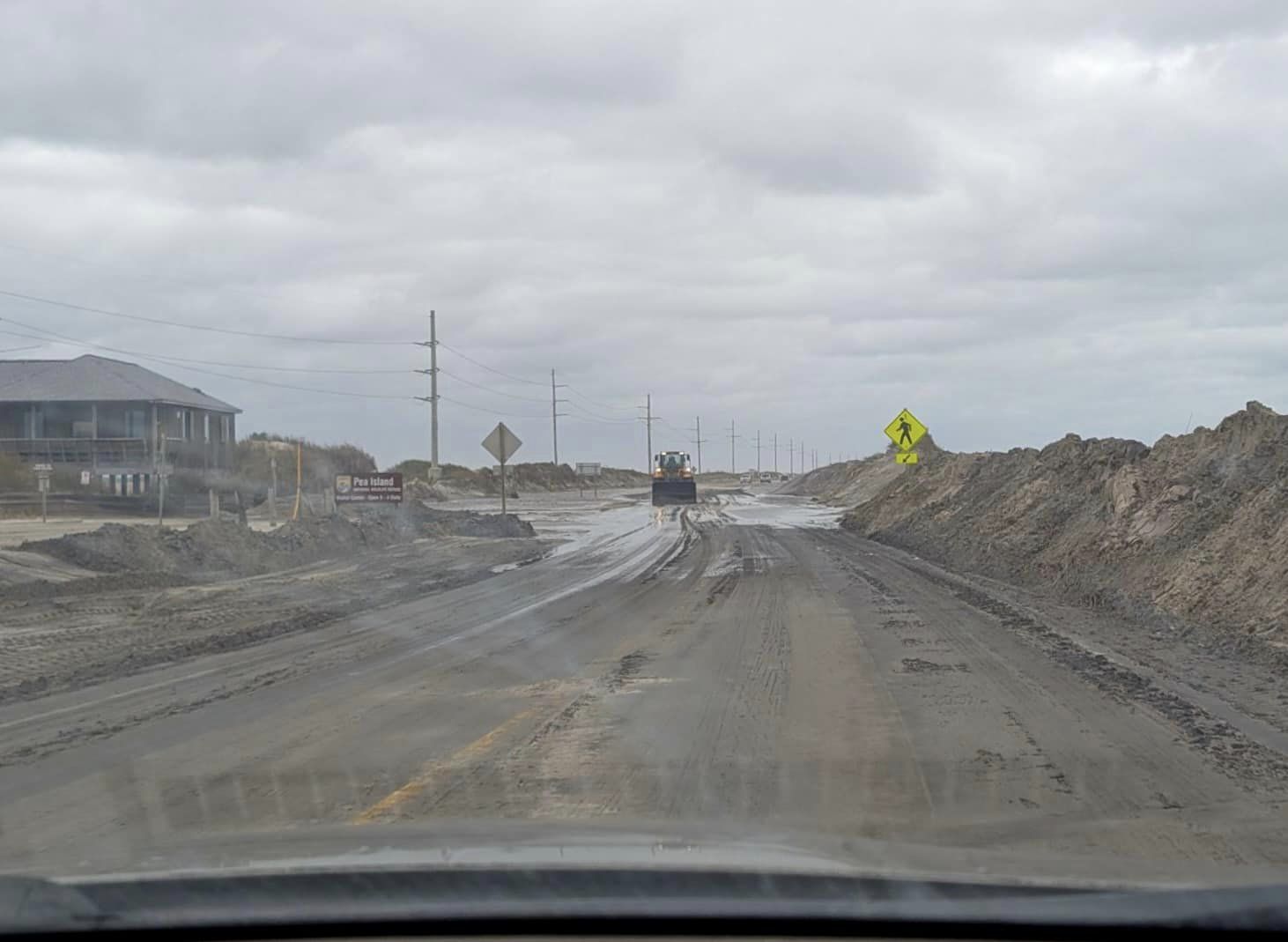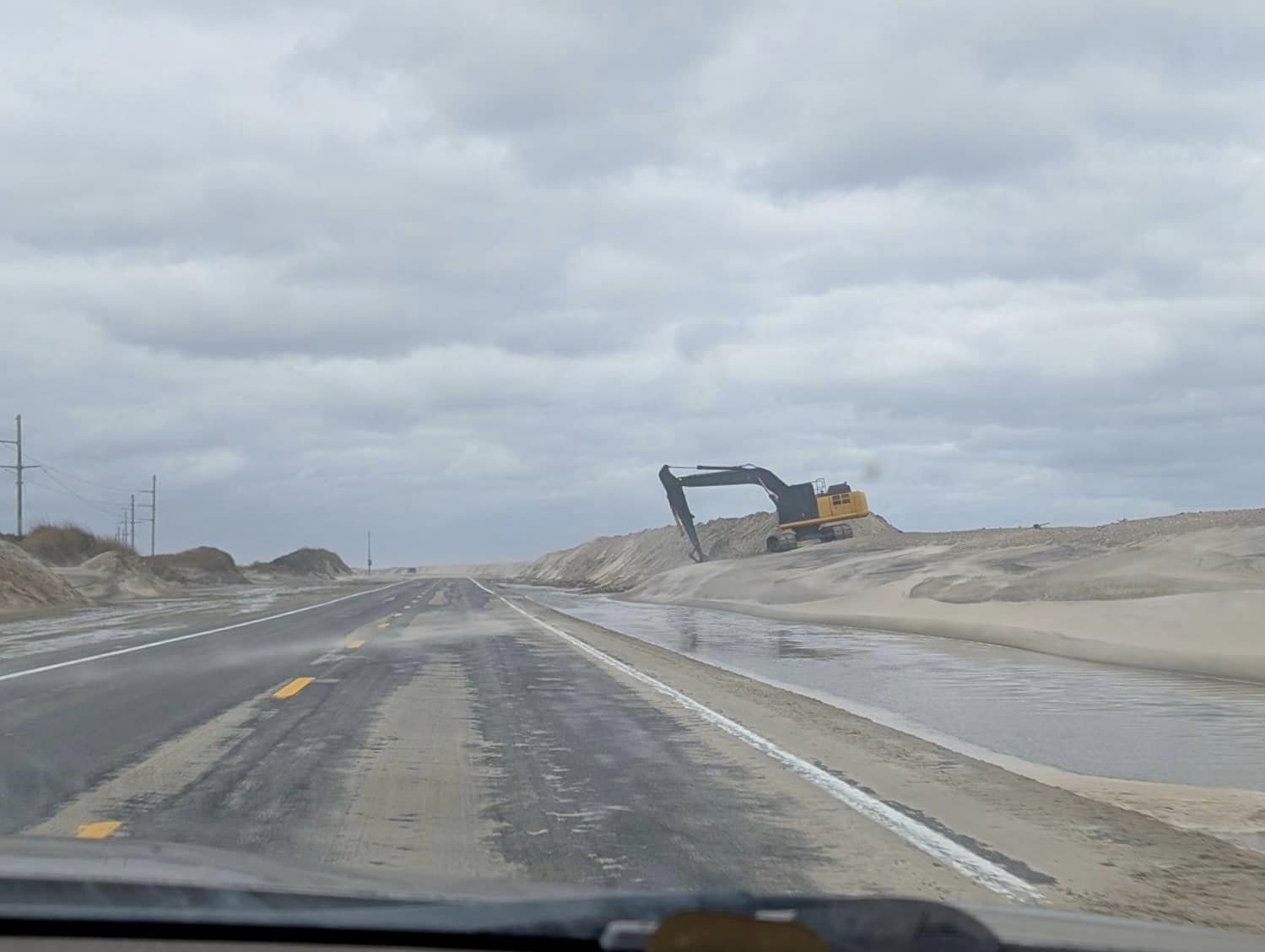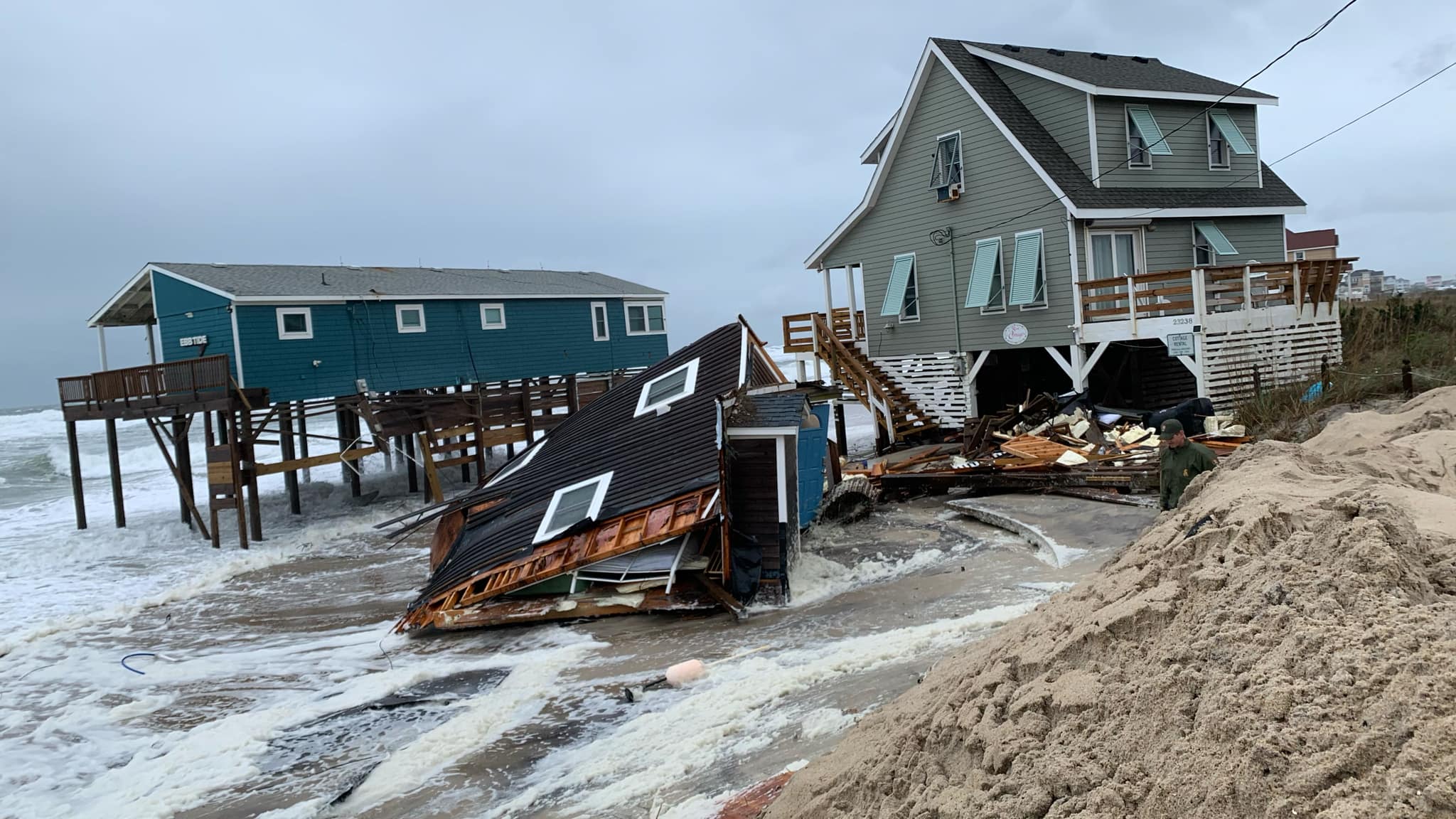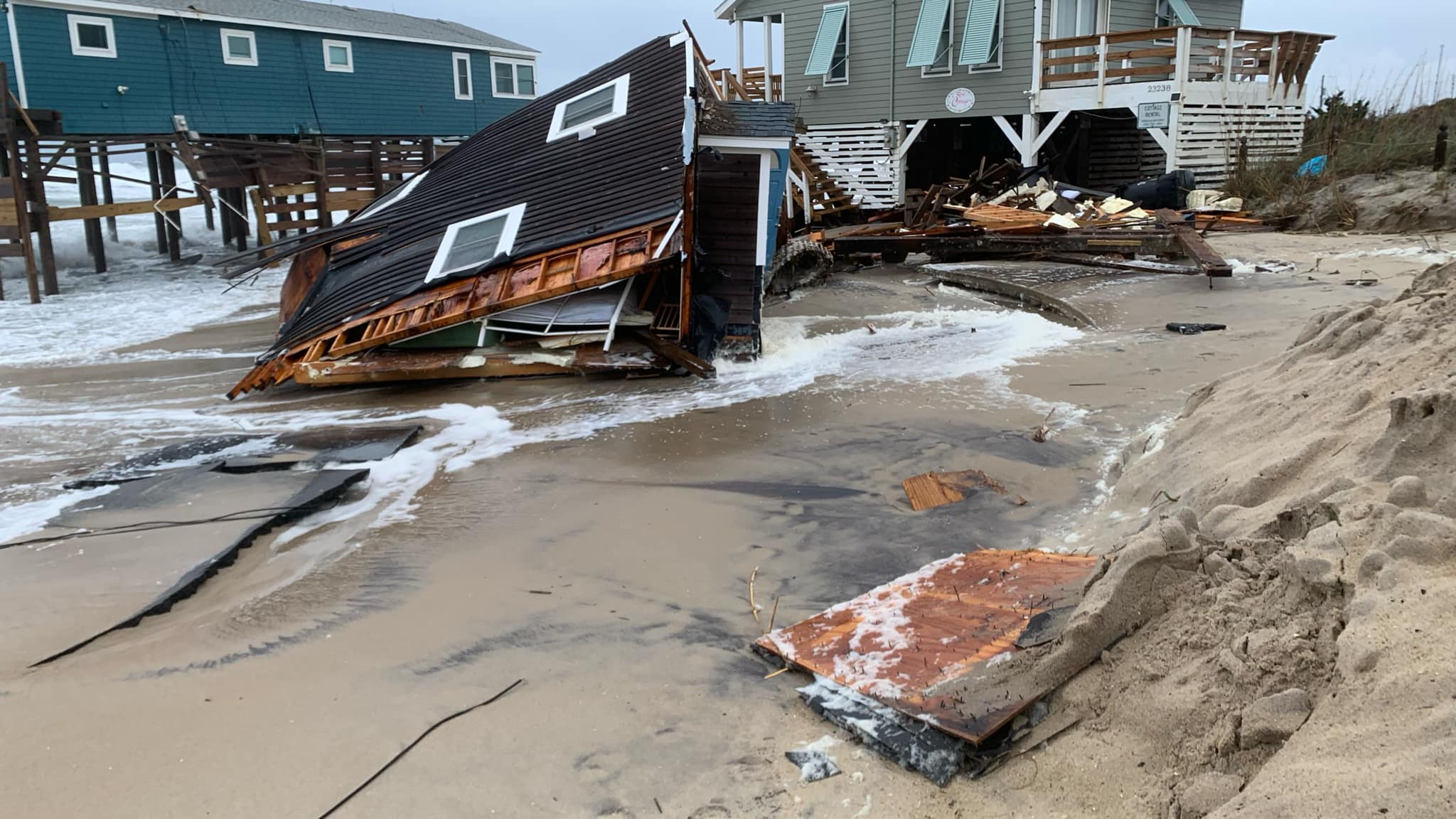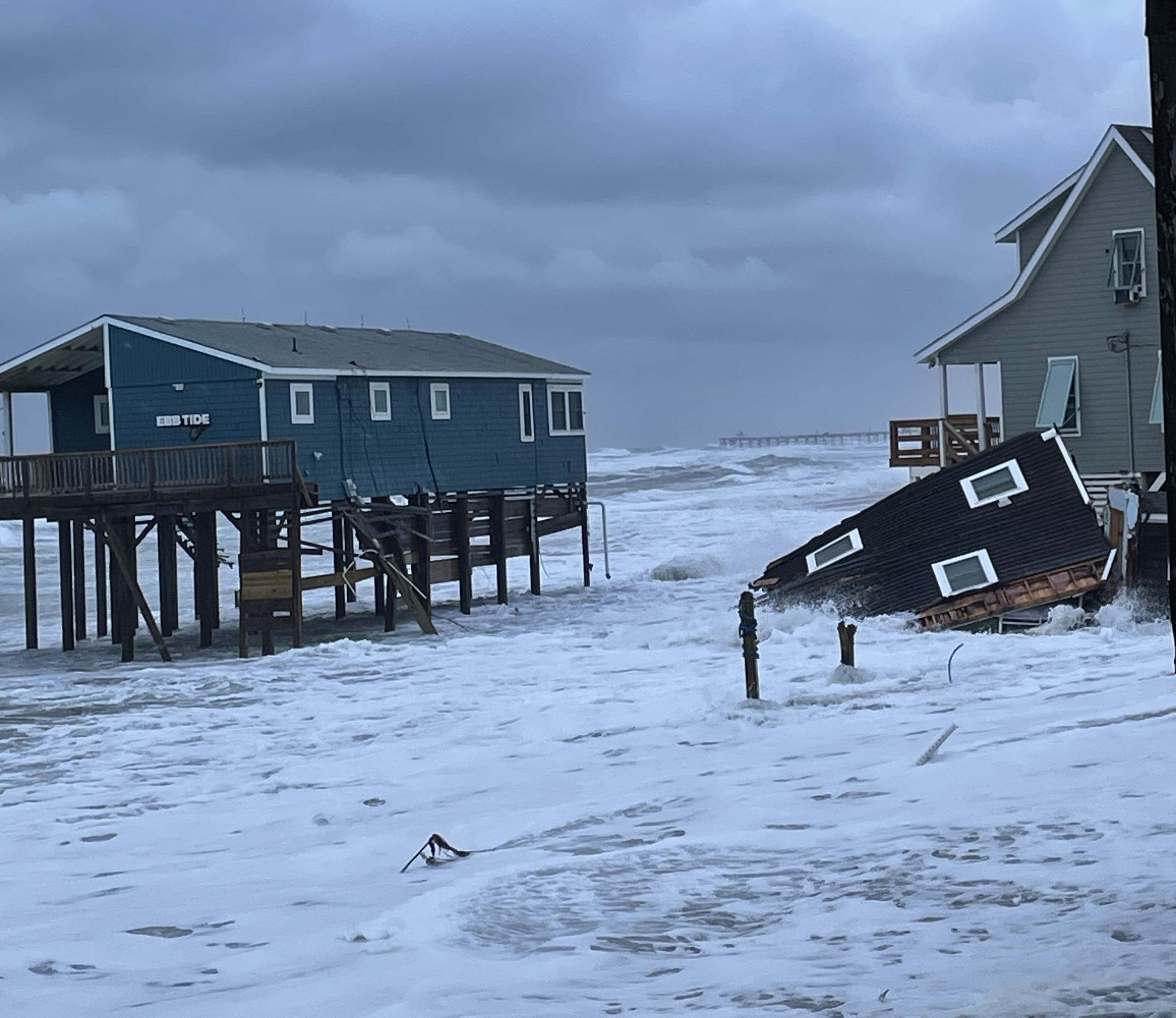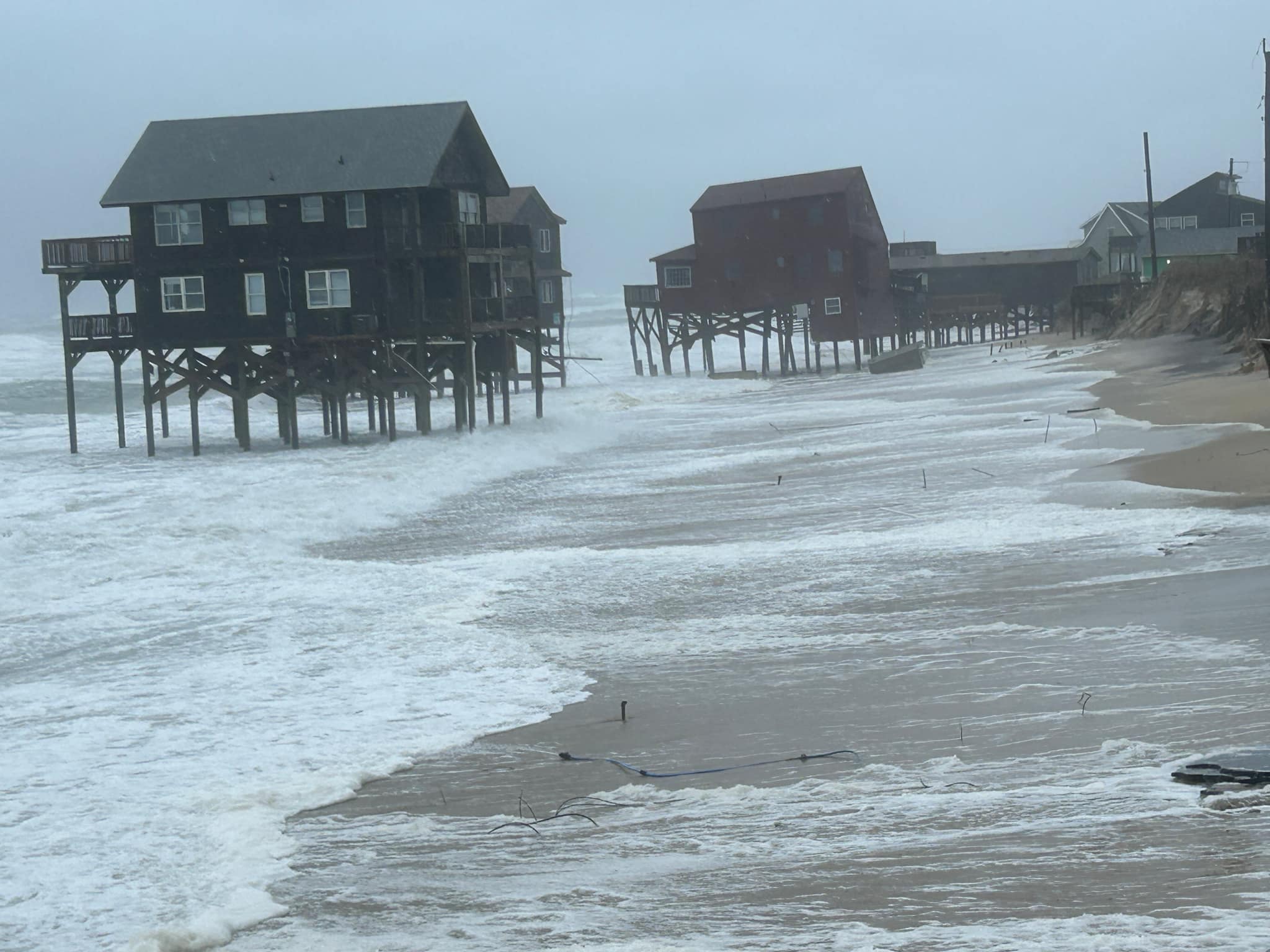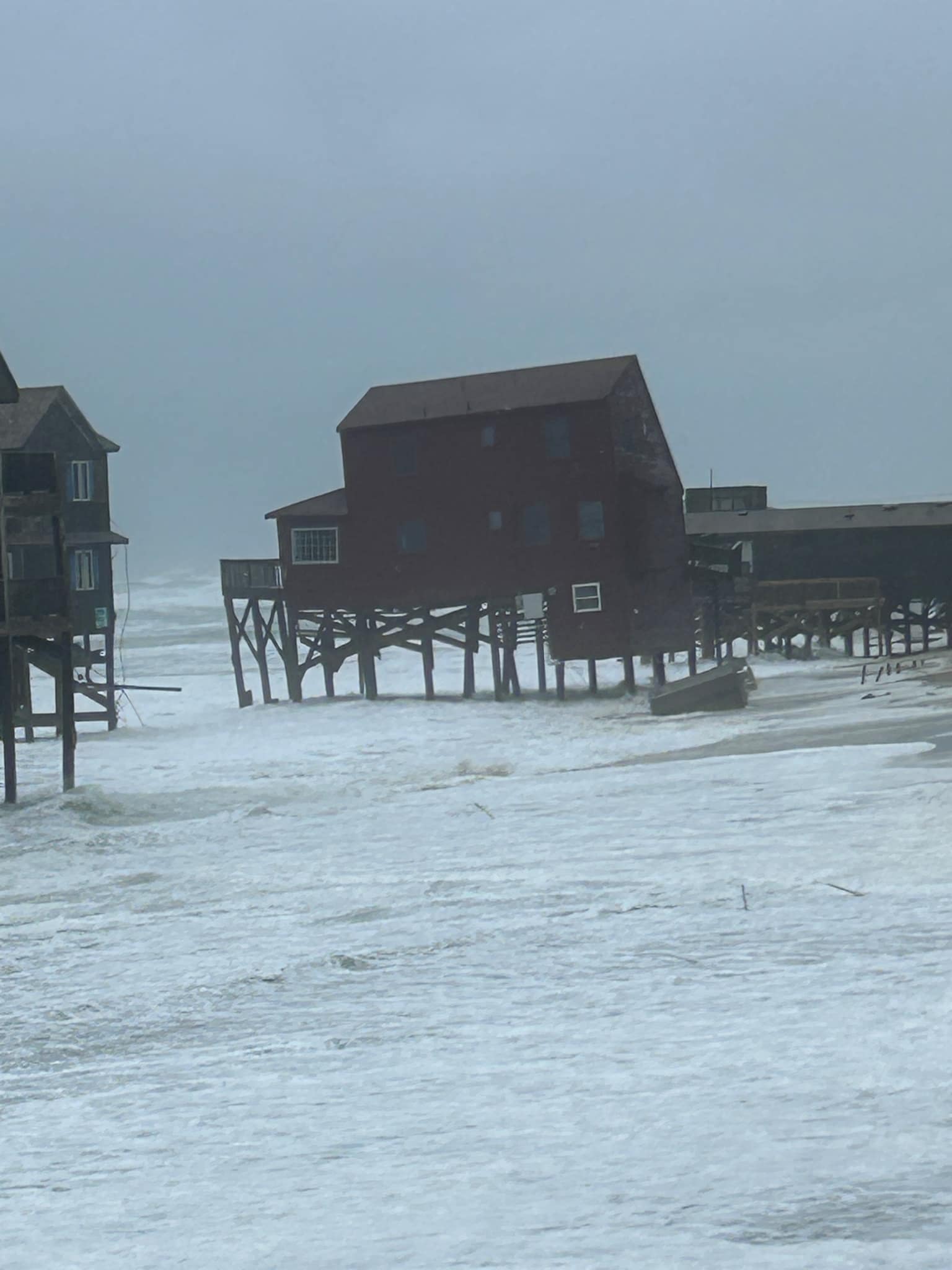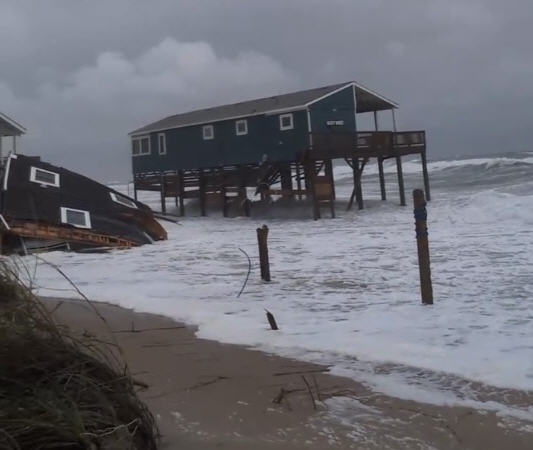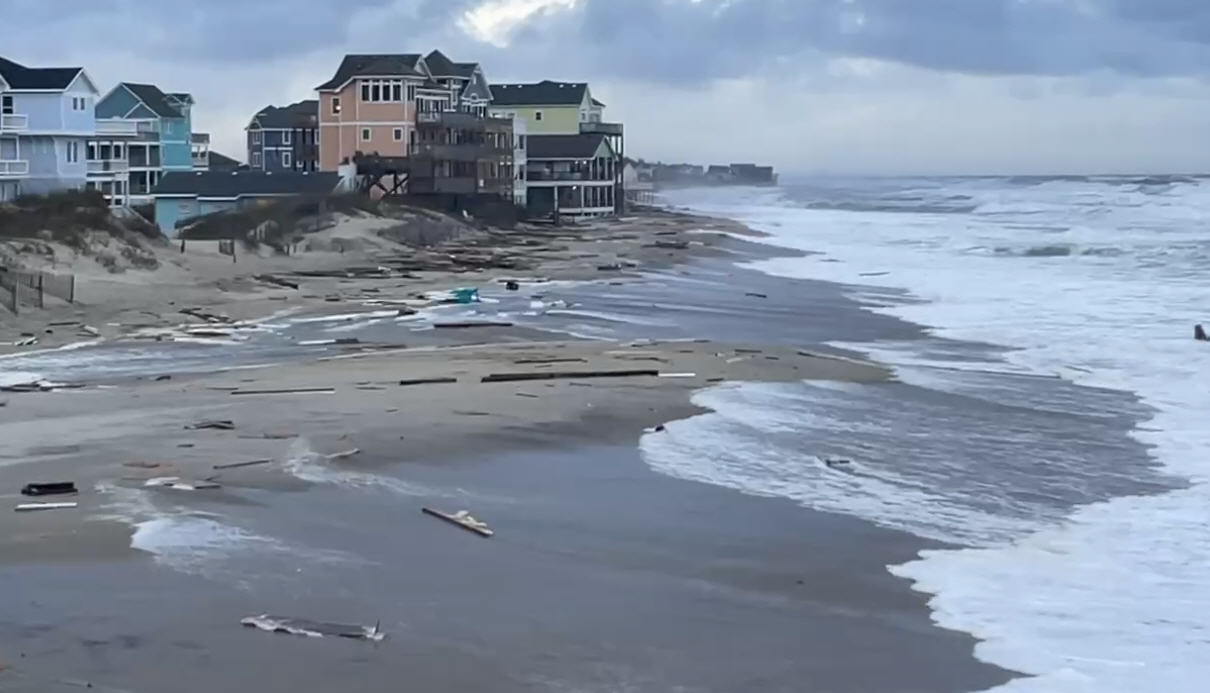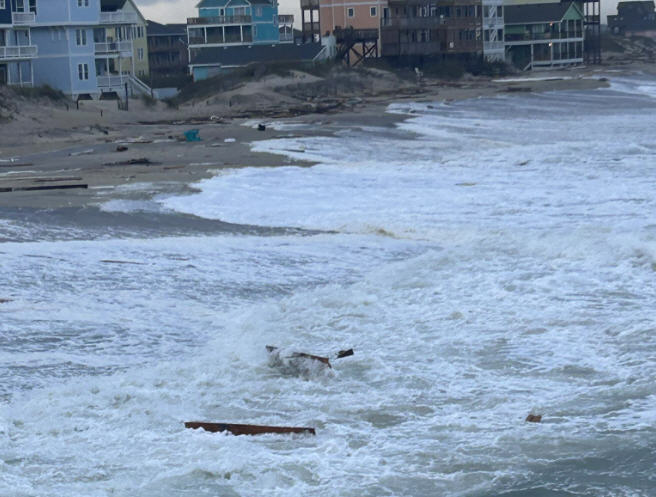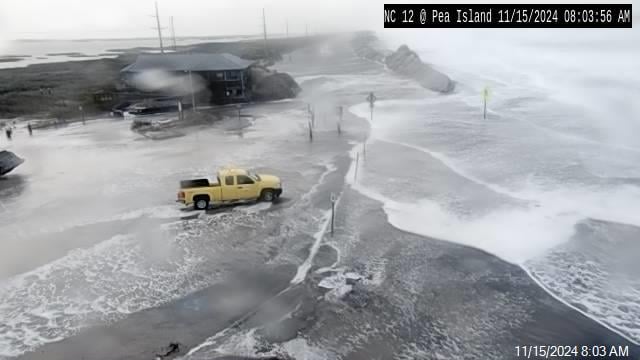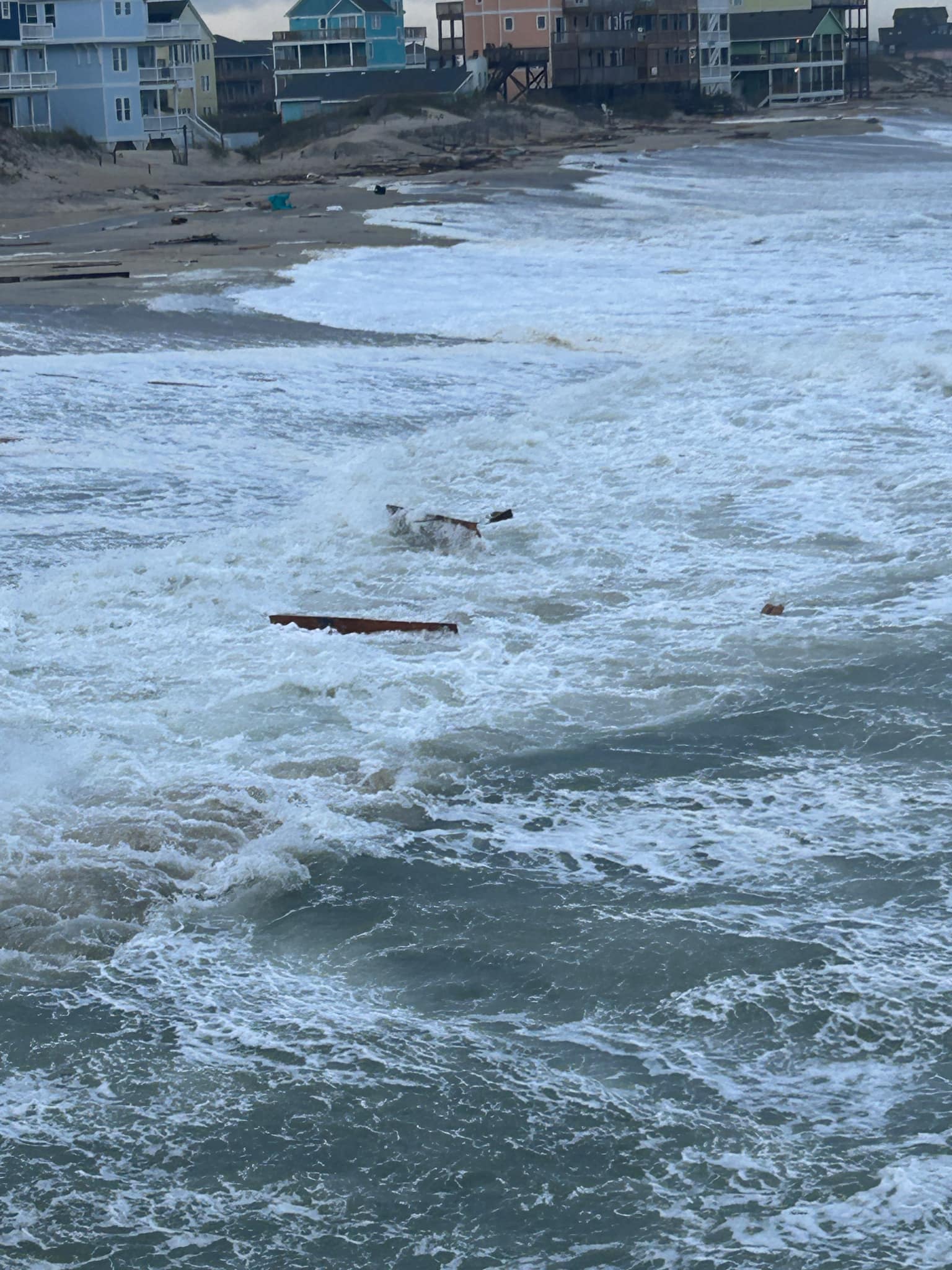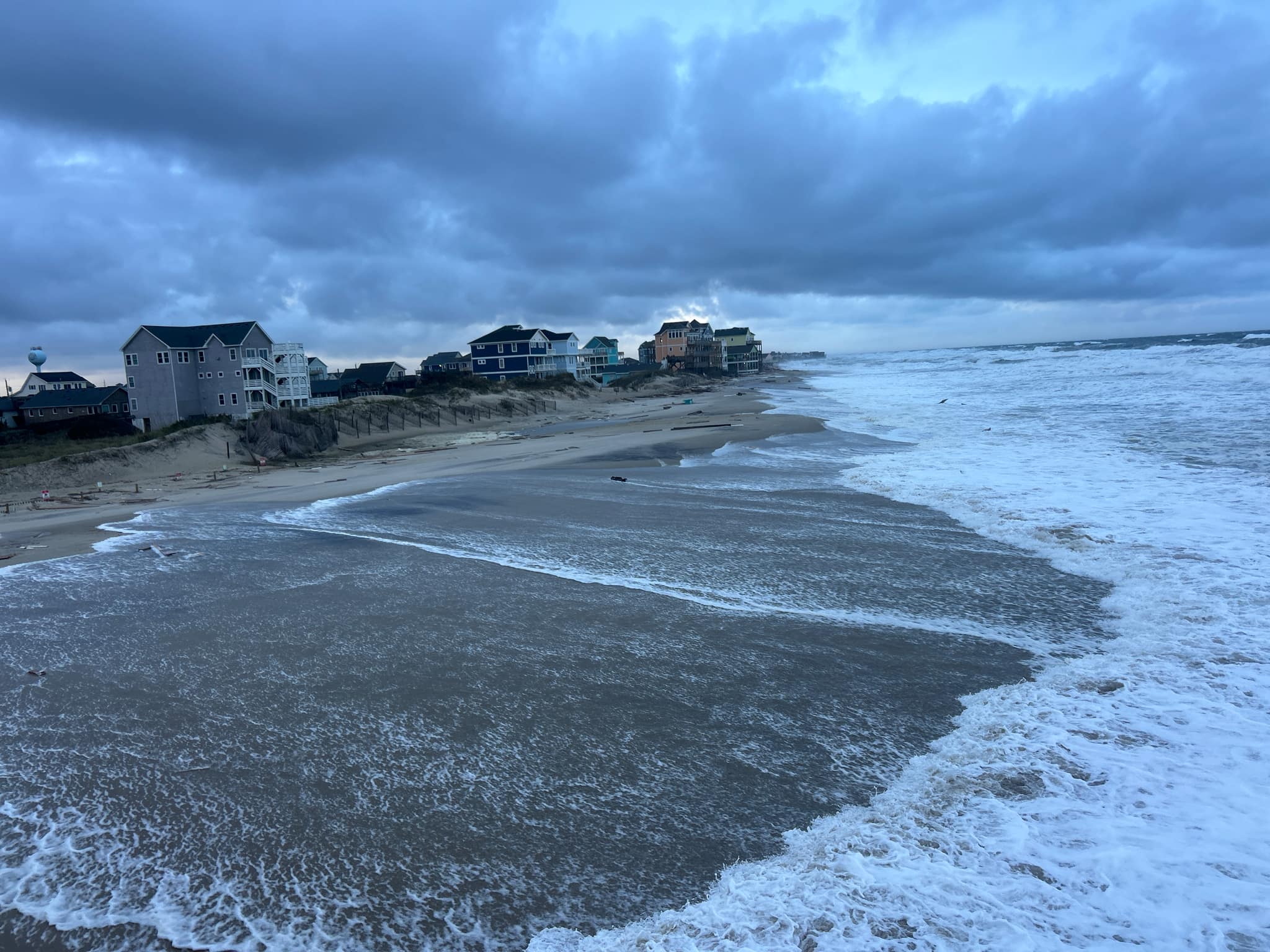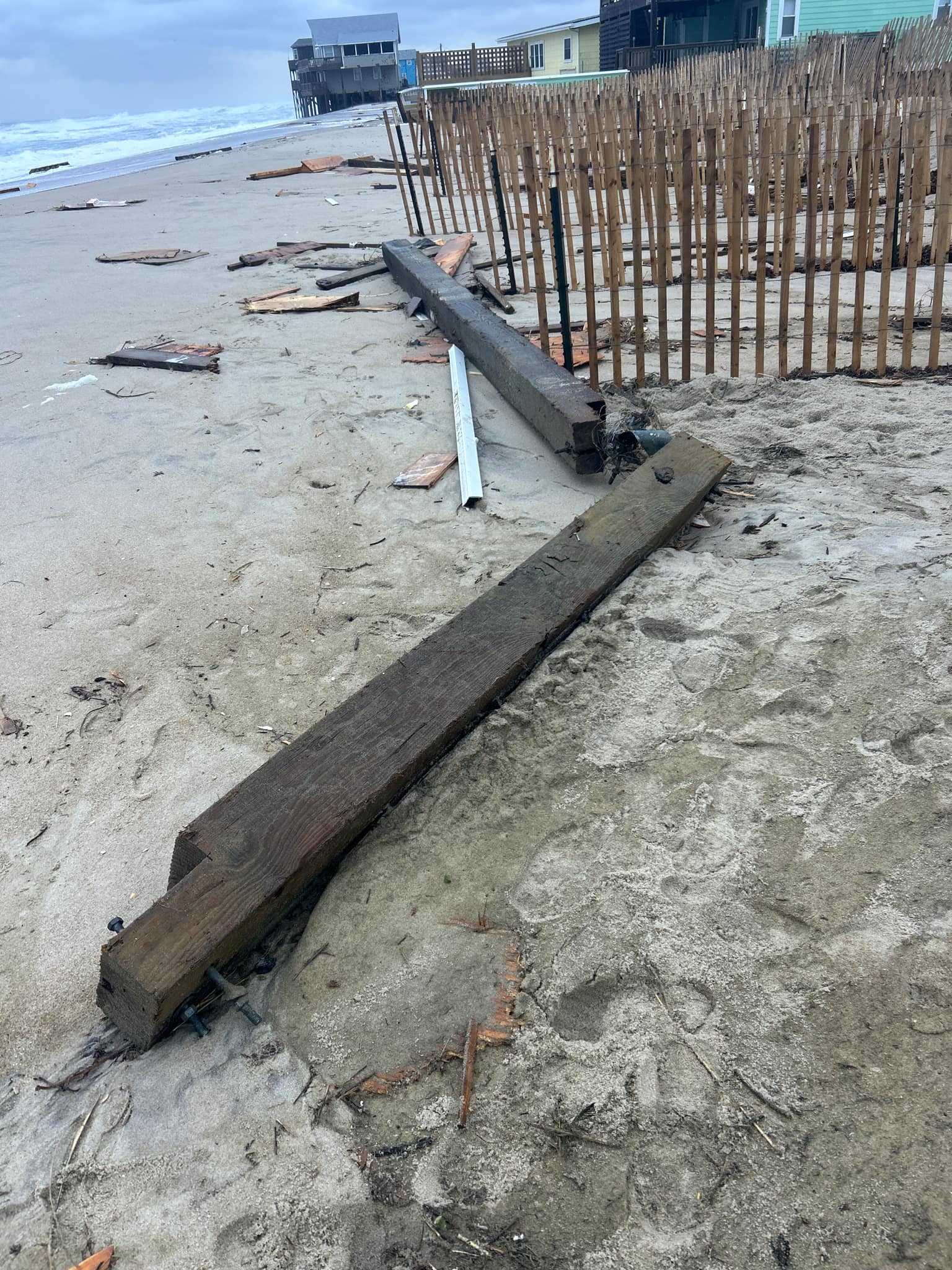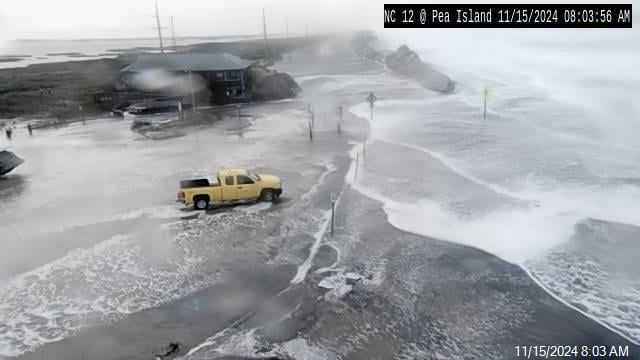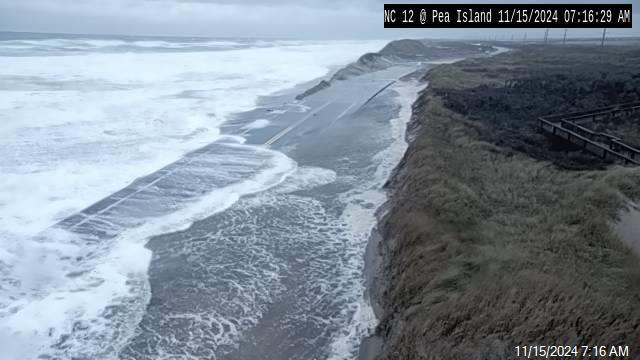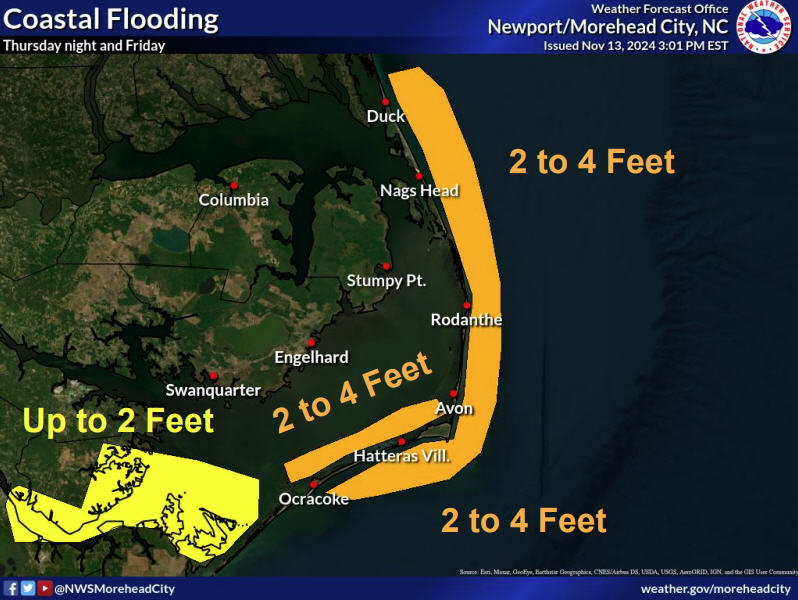Sea-level rise debate brings curtain down on legislative session By Frank Tursi Coastal Review Online
When the newly rewritten Coastal Management Policies Act and its controversial sea-level rise section was finally debated in the N.C. House Tuesday, there was little doubt that the issue still causes a rapid rise in temperatures.
The final version of the bill, which passed the House 68-43 on the last day of the legislative session, drops the mandate in previous versions that required using only historical data and a linear model to develop a state standard for anticipated future sea-level rise because of global warming.
Instead, the bill puts a four-year moratorium on developing a new model for sea-level rise and lays out in detail what the N.C. Coastal Resource Commission must take into account to set a standard. The bill requires, for instance, that the state set rates in at least four separate regions of the coast and develop both oceanfront and estuary estimates.
The vote culminated a month-long debate in the General Assembly over a draft policy that was first presented to the commission by its scientific advisors in 2010. That version recommended that the state prepare for a sea-level rise of 39 inches by 2100, or more than triple the historic rate. The forecast immediately came under fire from development interests and some coastal counties. They questioned the science behind the report and feared that regulations to protect against such a drastic rise in sea level would stifle economic growth on the coast.
The nearly hour-long debate on the bill turned into the last substantial row of the 2011-2012 legislative session as GOP House members angrily denounced those who ridiculed the bill and tore into the science panel’s report. The version that passed the Senate was the subject of hundreds of news reports, editorials and blog posts around the world. TV satirist Stephen Colbert mocked it on his popular “Colbert Report.” The House refused to take up that measure, and a conference committee came up with the compromise that the House approved Tuesday.
Rep. Pat McElraft, R-Carteret, who brokered the compromise with the Senate bill’s backers, said she and her staff paid a price. “I’ve had nasty phone calls from all over the United States,” she told her colleagues. “It may seem silly to some of you people, but it’s not silly to those of us on the coast.”
McElraft accused the science panel of using the only the most extreme model of climate change and ignoring historical data. “Over 30 global scientists have debunked the science panel’s science,” she said.
McElraft was referring to a list of the scientists provided by NC-20, a nonprofit group made up of some coastal counties and development interests on the coast that led the opposition to the CRC policy. Few of the scientists on the list have published research on sea-level rise or global warming in peer-reviewed scientific journals.
All the bill does, McElraft explained, is to ask the CRC to go back and study the issue, which the commission had already planned to do. McElraft said the panel needs to take other ideas about global climate change into account.
“What we have done is to ask them to use blended models, to use historical data, to use some real science, some science that we can all trust when we start making laws here in the state of North Carolina, when we start affecting property values of our citizens on the coast.”
The CRC’s science panel reviewed dozens of peer-reviewed scientific reports in coming up with its forecast, which was vetted by out-of-state experts and was in line with forecasts used by major scientific organizations around the world and by several countries and other states.
McElraft’s criticism of the report was not the harshest.
“What we’re calling science is not science,” Rep. Frank Iler, R-Brunswick, said before launching into a sharp criticism of the 2010 report. “I think we need a lot more information before we cost people hundreds of millions of dollars and disrupt everybody’s planning and change our whole attitude on permitting.”
He accused the “unelected science panel appointed by this unelected commission” of “making rules based on a fantasy basically.”
The advisory committee – formerly known as the Science Panel on Coastal Hazards – by law can’t devise rules. The CRC asked it to produce a report on future sea-level rise, which didn’t recommend new development rules. Even before the debate reached Raleigh, the CRC had watered down the original report through several revisions. The latest two-page version contains no forecasts for future sea-level rise but acknowledges that sea-level rise “is occurring and presents a gradual but significant coastal hazard along the coast of North Carolina.”
Rep. Pricey Harrison, D-Guilford, is a former CRC member who worked with the science panel. She defended the scientists, noting some are among the top coastal experts in the nation. She did thank House negotiators for helping to eliminate the Senate’s proposal. “That really was embarrassing to the state,” she said.
Harrison said the state needs to pay attention to issue. Given the state’s long, gently sloping coastline, North Carolina is highly vulnerable to a rise in sea level, she noted.
“I think scientists agree we need to prepare for what’s coming and not stick our heads in the sand,” Harrison said. “We need to consider sea-level rise when we’re developing policies on coastal management and I think it’s a terrible idea to put a moratorium on the Coast Resources Commission.”
Robert Emory, chair of the CRC, said the most unfortunate parts of the debate over the sea-level rise legislation were the attacks on the science panel, especially when they got personal.
“The level of vitriol that’s been part of the discussion has been unfortunate,” he said. “You can disagree with someone without calling into question their scientific integrity.”
If the bill avoids a veto by Gov. Beverly Perdue, the CRC is “obviously going to obey the law” in moving forward on its sea-level rise work, Emory said.
He said he is not sure what led to the bill, but suspects that legislators were concerned that the commission was planning on developing new regulations.
“That was one area of confusion,” he said. “The CRC had no intention of adopting a regulatory rate of sea-level rise.”
Braxton Davis, director of the state’s Division of Coastal Management, said he and his staff are starting to plan on how to move ahead under the new direction laid out in the law, which is in synch with the timeline for updating the sea-level rise report. He called the language in the bill “workable.”
“I think we can update the science in the way the bills directs us to,” he said.
One complication is the requirement that that a new report include sea-level rise estimates for at least four regions along the coast. Davis said it may be more difficult in areas where gauges have not been in place for very long, but the legislation allows for using data from other areas as “proxies” in developing estimates.
The sea-level rise legislation wasn’t the only change in coastal policy dictated by the bill. It also includes portions of McElraft’s original legislation on ocean setbacks that passed the House last year but wasn’t taken up by the Senate. It grandfathers roughly 200 properties along the coast from setback requirements that went into effect in 2009.
The new rules apply only to structures of 5,000 square feet or greater. In the event they are destroyed, owners would be allowed to rebuild using the old standard of 60 feet from the line of vegetation rather than the new 120-foot standard.
Davis said the division is also looking over the legislation’s requirement for an updated study of inlet hazard areas and the designation of areas of environmental concern around Cape Fear.
(This story is provided courtesy of Coastal Review Online, the coastal news and features service of the N.C. Coastal Federation. You can read other stories about the N.C. coast at www.nccoast.org.)




